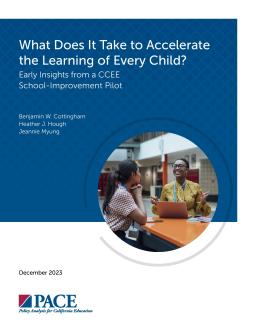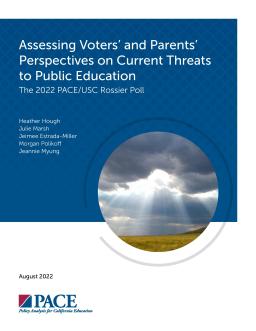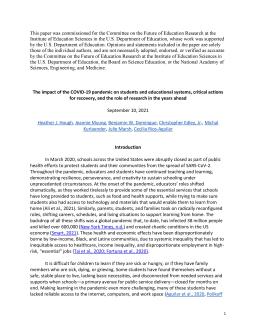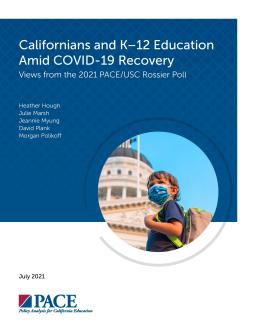Heather J. Hough

Heather J. Hough is an independent education consultant and former executive director of Policy Analysis for California Education (PACE) at Stanford University. As executive director, she led major statewide initiatives connecting research, policy, and practice. She also formerly served as a PACE senior research and policy fellow. Hough is a nationally recognized expert in education policy and governance. She works with state and local leaders to strengthen education systems with a focus on strategic planning, policy coherence, system improvement, and collaborative decision making. Her consulting practice helps organizations translate evidence into action by aligning goals, policies, and resources to improve student outcomes and rebuild public trust in education. She is an active volunteer and board member at the local and state levels, where she advances meaningful policy changes that improve people’s lives and strengthen public services delivery. Hough received her PhD in education policy from Stanford University.
updated 2025







